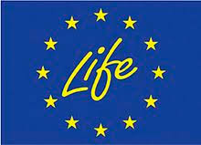We are committed to research into second generation biofuels and their production from non-food animal fat waste.
The goal of the Life Superbiodiesel Project, recognized by the European Commission with the 'Key Innovator' seal through the 'Innovation Radar' initiative, is to produce second generation biofuels through catalytic processes using waste fats from the leather tanning industry.
The project aims at a comprehensive recovery of meat waste:
- The protein fraction will be refined to obtain high added-value derivatives.
- The fat will be recovered as second generation biofuels.
For this purpose, a demonstration plant will be built at the ORGANOVAC facilities, which will use catalysts developed by the Institute of Chemical Technology of Valencia (ITQ-CSIC) and will have the validation of the biofuel obtained by Cepsa.
One of the main advantages of the project is being able to make use of unrefined fats while avoiding pre-treatment stages and reducing waste generation.
In addition, the biofuel complies with the standards of the European Renewable Energy Directive for second generation biofuels (EU 2018/2001, December 21, 2018) since it is obtained from waste from other industries and therefore does not compete in food markets or require high-environmental-impact agricultural activities such as deforestation, water consumption or indirect CO2 emissions.
The project has been funded under the European program LIFE 2019 Climate Change Mitigation and includes participation from the Research Association for the Toy industry, and related industries (coordinator), IMDEA Energy Foundation, Research Association for the Footwear industry and related industries , ORGANOVAC SL, University of Murcia, ITQ-CSIC and Cepsa.

